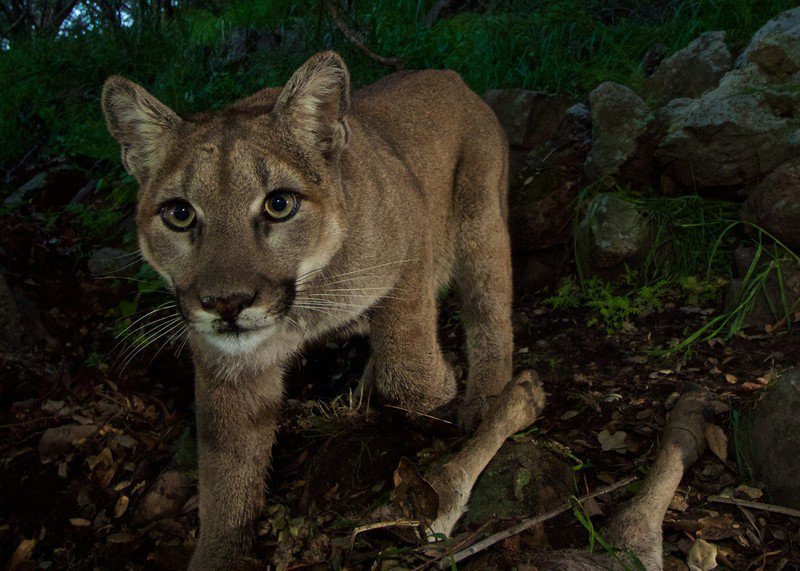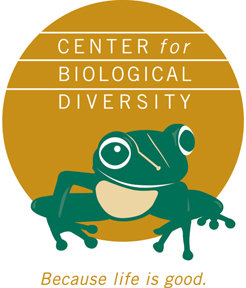
Female mountain lion, P-33, in the Santa Monica Mountains. Photo by National Park Service.
State Leads Nation on Safeguards for Most-dangerous Anticoagulant Rodenticides
December 30, 2020 - SACRAMENTO, Calif.— Increased safeguards to protect California’s native wildlife and domestic animals from super-toxic rat poisons will begin on January 1, 2021. The  California Ecosystems Protection Act (A.B. 1788) places important restrictions on the use of super-toxic rodenticides, known as second-generation anticoagulant rodenticides, to protect the state’s animals.
California Ecosystems Protection Act (A.B. 1788) places important restrictions on the use of super-toxic rodenticides, known as second-generation anticoagulant rodenticides, to protect the state’s animals.
“This common sense step to better protect our wildlife from these dangerous rat poisons should be adopted across the nation,” said Jonathan Evans, environmental health legal director at the Center for Biological Diversity. “When there are literally hundreds of safer, cost-effective solutions on store shelves there’s no reason to leave the worst of the worst poisons on the market.”
The new law, introduced by Assemblymember Richard Bloom (D-Santa Monica), requires state regulators to reduce the threats to nontarget wildlife before the new restrictions on second-generation anticoagulant rodenticides can be lifted. It also includes exceptions to protect public health, water supplies and agriculture.
“Rodenticides are known to cause extreme suffering and death to non-target animals such as raptors who are harmed from secondary poisoning,” said Kim Kelly, director of legislative affairs for the Animal Legal Defense Fund. “It makes complete sense to end this cruel practice with much safer alternatives available.”
Despite a 2014 ban on consumer sales, the super-toxic rodenticides continued to be heavily used by commercial operators. The California Department of Pesticide Regulation’s 2018 analysis of 11 wildlife studies determined anticoagulant rodenticides are poisoning a wide range of animals, including mountain lions, bobcats, hawks and endangered wildlife such as Pacific fishers, spotted owls and San Joaquin kit foxes.
“Anticoagulants kill the very wildlife that help us control rats and mice. California is taking a giant step to reduce secondary poisoning and toward a sustainable public health solution,” said Lisa Owens Viani, director of Raptors Are The Solution.
A.B. 1788 was cosponsored by the Animal Legal Defense Fund, Center for Biological Diversity and Raptors Are The Solution.
Background
Rodents that consume anticoagulant rodenticides are frequently consumed by other wildlife, resulting in secondary poisoning and poisoning of the food chain. Developed in the 1970s, second-generation anticoagulant rodenticides have higher potency than earlier compounds. Super-toxic rodenticides have a half-life of more than 100 days in rodents.
Anticoagulant rodenticides interfere with blood clotting, resulting in uncontrollable bleeding that leads to death. Super-toxic poisons include the second-generation anticoagulants brodifacoum, bromadiolone, difethialone and difenacoum, which are especially hazardous and persist for a long time in body tissues. Predators and scavengers that feed on poisoned rodents are frequently poisoned by these slow-acting rodenticides.
The harm caused by second-generation anticoagulant rodenticides in California is well documented. More than 70% of wildlife tested in California in recent years has been exposed to dangerous rodenticides, including more than 25 different species.
There are many safer alternatives to anticoagulant rodenticides. Exclusion and sanitation are the best approach to managing rodents. Sealing buildings, eliminating food and water sources, and trimming foliage and tree limbs from the sides and roofs of houses are also important steps to reduce the presence of rodents.
When physical exclusion is not possible, there are dozens of safer rodent-control options including providing owl boxes in rural areas to encourage natural predation. More than 175 less-toxic rat poison products are still available for use.
Anyone wanting to report complaints about second-generation anticoagulant rodenticide use can contact the local county agricultural commissioner by finding the number online or by calling 1-87PestLine (1-877-378-5463). For more information click here.
For more information on nontoxic rodent-control methods, visit SafeRodentControl.org.
The Center for Biological Diversity is a national, nonprofit conservation organization with more than 1.7 million members and online activists dedicated to the protection of endangered species and wild places.
The Animal Legal Defense Fund works to protect the lives and advance the interests of animals through the legal system with high-impact lawsuits; free legal assistance to prosecutors; legislative advocacy; and resources for law students and professionals to advance the field of animal law. aldf.org.
Raptors Are The Solution is a nonprofit project of Earth Island Institute based in Berkeley, CA, dedicated to educating the public about the ecological role of birds of prey and other predatory wildlife and the danger they face from rodenticides.
Source: Center for Biological Diversity








